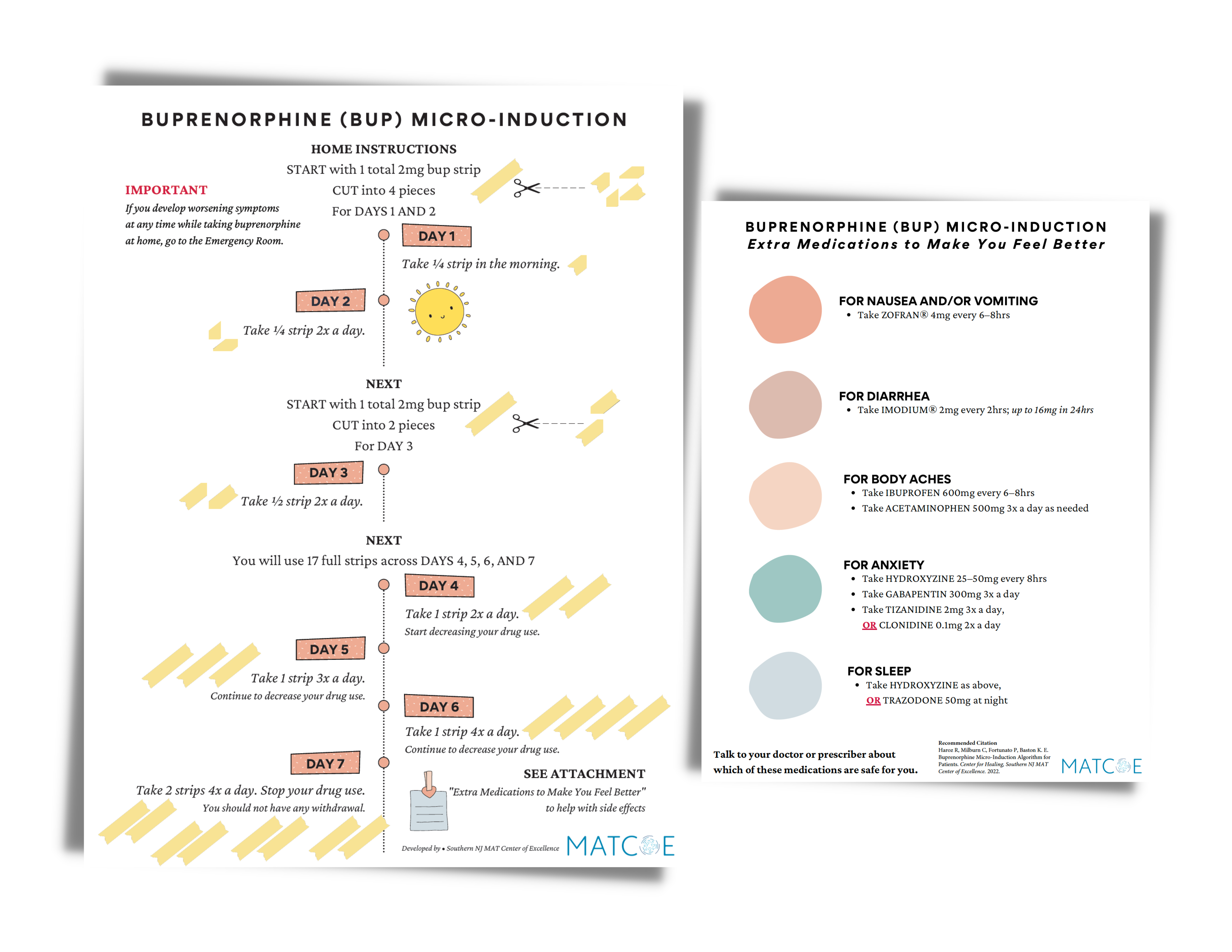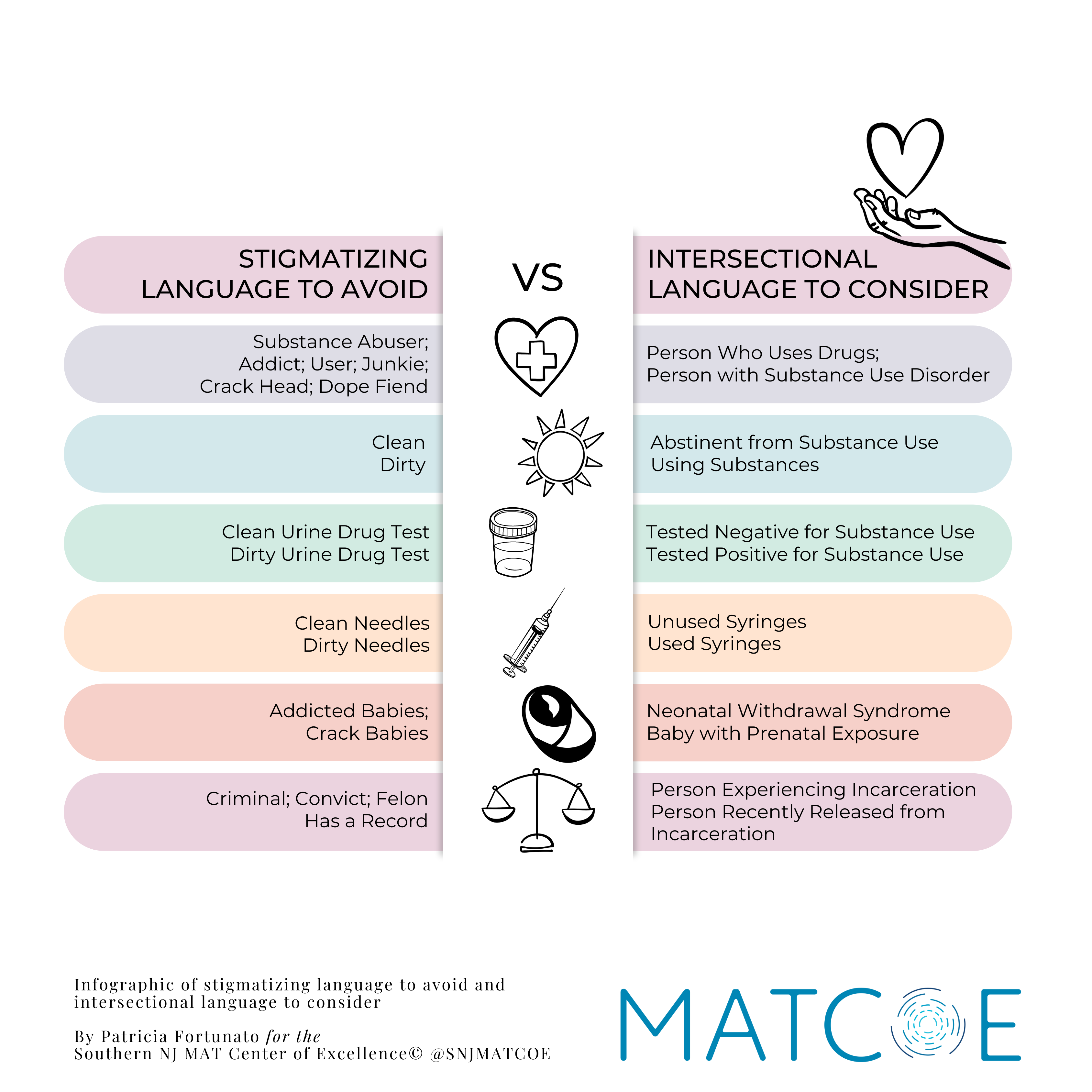This week is National Drug and Alcohol Facts Week® (NDAFW), an observance that encourages dialogue surrounding substance use and substance use disorder (SUD). This year for NDAFW, the Cooper University Health Care Center for Healing, a State of New Jersey-designated Medication for Addiction Treatment Center of Excellence (MATCOE), will share content to educate providers, interdisciplinary care teams, patients, and communities across Cooper, the region, and the state on SUD and available treatments at Cooper. Please follow Cooper‘s eHealth Blog and MATCOE social media networks for daily updates on Twitter, LinkedIn, and Instagram.
About Substance Use Disorder
Substance use disorder (SUD), known commonly as addiction, is a complex medical condition in which there is use of drugs or alcohol, despite harmful consequences that cause impairment. SUD is not a moral failing. It is a chronic disease that has approximately the same relapse rate as other chronic diseases. Those with SUD have limited access to care and face significant stigma when they enter health care systems. Thankfully, compassionate treatment options are available at the Center for Healing, where the team provides evidence-based interventions, including medication for addiction treatment (MAT).

Further this spring, as part of a screening, brief intervention, and referral to treatment (SBIRT) integration with primary care networks, the Center for Healing will launch and disseminate a patient-facing health communication series on substance use disorder (SUD), alcohol use disorder (AUD), specific substances, evidence-based treatment, and harm reduction resources, created by the center’s Content Manager, Patricia Fortunato, with multidisciplinary clinical expert insight from past Cooper Addiction Medicine Fellowship graduate, Bridget Durkin, MD; center Clinical Pharmacist, Valerie Ganetsky, PharmD, MSHP, BCPS; Addiction Medicine Specialists, Jennifer Moyer, MD, MPH and Rachel Ehrman–Dupre, MD; and Center Head and Medical Director of Government Relations at Cooper, Kaitlan Baston, MD, MSc, DFASAM. Resources will be available at cooperhealth.org/recovery and via Southern New Jersey Medication for Addiction Treatment Center of Excellence (MATCOE) networks.
Evidence-Based Medications for Substance Use Disorders
The three Food and Drug Administration (FDA)-approved medications to treat opioid use disorder (OUD) are methadone, buprenorphine, and naltrexone. When used correctly, these medications reduce morbidity and mortality, increase treatment retention, decrease or eliminate opioid use, improve birth outcomes, lower the risk of infectious diseases, and allow people to return to healthy, functional living.
Methadone can only be prescribed to treat SUD through an opioid treatment program (OTP) and can be difficult to access in the local community. Buprenorphine is more accessible, as it can be prescribed by any physician or advanced practice provider with a DEA license. With the elimination of the “X-waiver” as of January 12, 2023, prescribers no longer need a waiver, special training, or any special designation to prescribe buprenorphine for OUD. The Center for Healing and Southern New Jersey MATCOE team are currently providing training, education, and consultation services around prescribing practices that can help all providers begin treating patients with OUD.
The Center for Healing team has created algorithms and protocols to support providers in treating patients with OUD and other substance use disorders. The Cooper Emergency Department Addiction Pathways (EDAP) program is able to stabilize patients on MAT and provide them with immediate follow-up in the ambulatory clinical practice setting at the Center for Healing. As part of the EDAP, new emergency department (ED) navigator specialists are available to screen for SUD and provide care coordination that assists patients in accessing community-based services.

To support buprenorphine treatment providers who may often find themselves sketching on paper the micro-induction process for patients, the Center for Healing team established and designed a buprenorphine/naloxone sublingual micro-induction protocol for outpatient clinical usage across Cooper campuses and with Southern New Jersey Medication for Addiction Treatment Center of Excellence (MATCOE) networks. Further prescriber education and health communication resources on MAT are available at snjmatcoe.org.
The three FDA-approved medications to treat alcohol use disorder (AUD) are acamprosate, disulfiram, and naltrexone. They are proven effective medications for many individuals who receive AUD treatment. More information on alcohol use and AUD is available via the Substance Abuse and Mental Health Services Administration.
Naloxone Medication to Reverse an Opioid Overdose
Naloxone is an FDA-approved medication designed to rapidly reverse the life-threatening effects of an opioid overdose. Naloxone is commonly administered through the intranasal spray formula, known commonly as NARCAN®, or through an intramuscular injection. It has been administered in EDs across the nation for decades, and is increasingly being utilized by first responders, caregivers, loved ones, and bystanders.
Counseling on naloxone administration can be facilitated by any health care professional. A basic counseling script for naloxone nasal spray and an infographic are available at snjmatcoe.org. The new Naloxone 365 program in New Jersey enables participating pharmacies to provide one, two-dose naloxone nasal spray kit to any individual aged 14 or over who requests it, no prescription necessary, cost-free, and anonymously.
Destigmatizing Substance Use Disorders and Treatment
Stigma and negative interactions with health care professionals are among the most common reasons that individuals with SUD do not initiate treatment or remain in treatment. Stigmatizing language can perpetuate the shame historically associated with SUD and MAT. Education for all health care professionals, as well as the public, is a core component in the fight against the overdose crisis. Language influences the public perception and can affect policies, funding, and access to evidence-based treatment.
“I teach medical students, nursing students, residents about how to address substance use disorders with clients a lot, or just substance use in general, and one of the things I teach, as best you can, is to be completely open about it. And when I teach them, I always say not a whiff of judgment.” —
Kaitlan Baston, MD, MSc, DFASAM, Center for Healing Head and Medical Director of Government Relations at Cooper University Health Care. Listen to the discussion via the United States Department of Health and Human Services’ Office of Head Start.
Person-first language empowers individuals by putting the individual first and one aspect of their personhood second. Being cognizant of stigmatizing language to avoid, and intersectional language to consider, can help reduce stigma and harm towards individuals experiencing SUD.

View the Southern New Jersey Medication for Addiction Treatment Center of Excellence (MATCOE) Substance Use Disorder (SUD) Language Guide at snjmatcoe.org.
